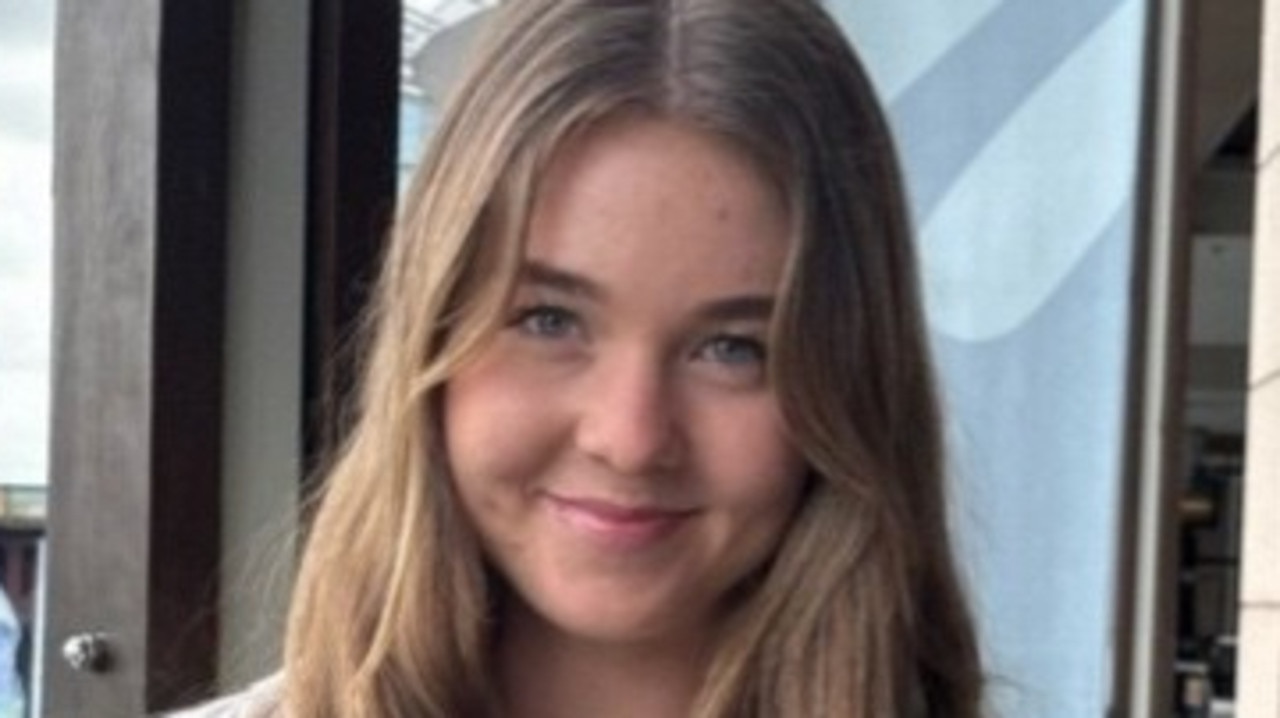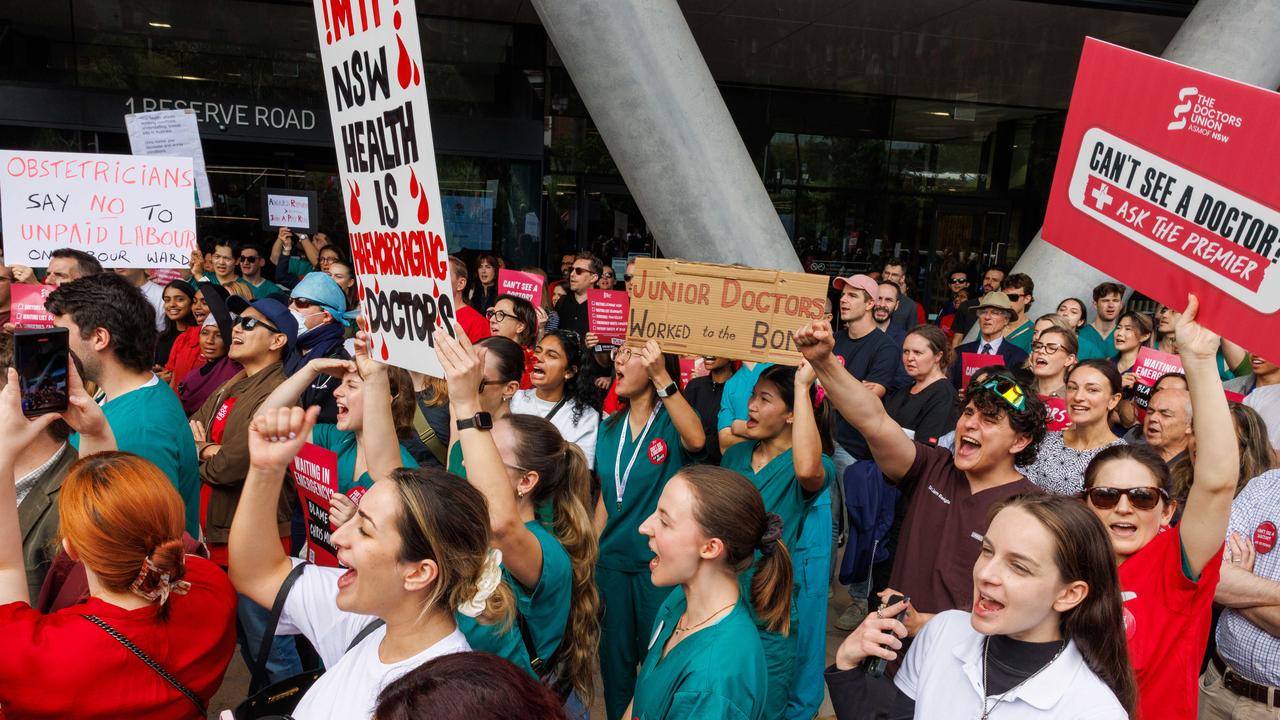Can We Talk campaign: Joel Brown’s death from suicide has scars family, friends for life
WHEN Joel Brown slammed the door in his mother’s face, little did Karin know that would be the last time she would ever see her beautiful boy.
THE people who loved Joel Hayden Brown will never erase the emotional scars of his suicide.
While the 23-year-old larrikin believed he was a burden to his family and friends, the reality is his untimely death is the one thing that has burdened them for life.
“Suicides within close family and friendship networks are not forgotten,” University of Sydney’s Brain and Mind Centre co-director Professor Ian Hickie said.
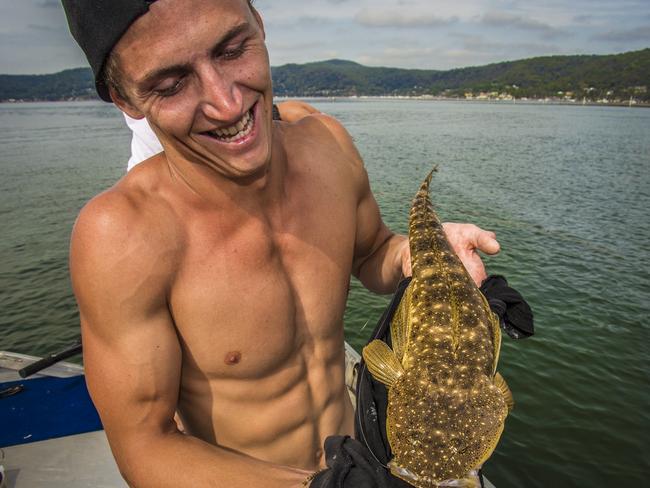
“People think that the burden will be relieved. The reality is that people are worse off for life. There is no sense of normal grieving, no sense of being able to resolve the death.
“Families will always be asking ‘should we have done more, did we fail to understand what they were thinking?’.”
Suicide is the leading cause of death for 15- to 24-year-olds, and suicide rates are at their highest level in 10 years, according to the Australian Bureau of Statistics.
In the lead-up to his death, on January 11 last year, everyone knew Joel was struggling.
He wasn’t working, had little cash, was drinking heavily, and in constant pain after a saw chopped through his hand while at work.
He was also anxious about meeting up with girlfriend Maz.
But whatever those problems were, they are nothing compared to the emotional damage that his death has unleashed on his family and friends.
BEN PIKE spoke to eight of those people 15 months on from Joel’s death. Each is forced to live with the heartbreak of Joel’s decision to end his own life.
JOEL’S GIRLFRIEND
MAZ FIETZ, 27
THE last thing Joel did before he died was to text his girlfriend, mother-of-two Maz.
Having been on the Central Coast for almost a week after travelling down from his home in Casino, Joel grew increasingly frustrated that Maz hadn’t seen him yet.
They had been texting all day, but Maz said she had been unable to find the time to see him following his surprise visit.
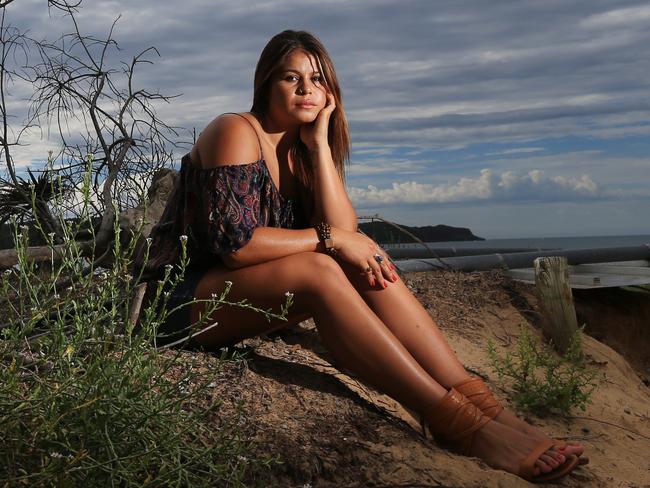
“He was sending messages and then he tried to call; it was 12.13am,” she said.
“I checked my phone, it was on the table set to silent. I said to one of my best mates, ‘he has just tried to call my phone’.
“Then straight after it there was message which said ‘you actually were the only girl I’ve loved. Don’t hate me for this’.
“I remember looking at it and — it was something I will never forgive myself for — said to my friend ‘what does he mean by don’t hate me for this’ and then picked up the phone and threw it across the table. That message was sent at 12.13am. They said he committed suicide at 12.15am.”
Joel and Maz met in July 2014 at the Splendour in Grass Festival in Byron Bay. The attraction was instant and they started a long-distance relationship immediately.
“If I told him that I loved him he would not believe it,” she said.
“No, he would (believe it), but then at some point he would be like ‘why’? He did not have that full love for himself to understand why I would love him.
“When I’d see him, from that second he would already be upset because he didn’t want the day to come when I’d have to go.”
“If I told him that I loved him he would not believe it.”
“I know now why he was so scared for me to leave or be by himself, because he knew those demons in his head would try and take control and win over him.”
Maz said in the first few months after his death she “was in the foetal position in bed 24/7”. She was shattered and unable to return to her job as a personal trainer. Maz’s father had to look after her eight-year-old daughter Tzuki Tory and six-year-old son Bali.
Joel was besotted with Maz — she’s loving, she’s beautiful, she surfs — and had twice asked her to marry him.
Looking back she said she would do things a lot differently.
“I would be like ‘yes, I’ll marry you, come and live with me’.
“He didn’t have much money at the time, but I would’ve probably been happy with a Burger Ring anyway,” she said.
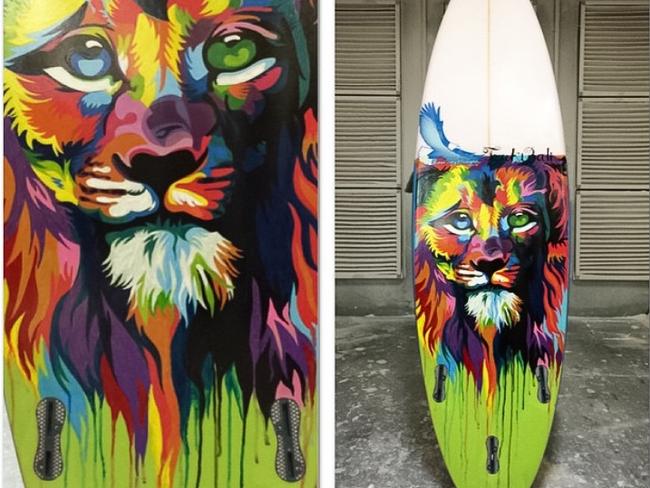
“I wish I asked Joel more ‘how are you feeling now?’ Or ‘let’s try and get you some help’. Let him know that it is OK.
“He didn’t like feeling like that either because he thought it was embarrassing or weak.”
Maz wears her heart on her sleeve and her pain on her hands. A month after Joel died she tattooed her hand with a mandala. For her, the symbol represents Joel, who in turn represents universal love and the afterlife.
“I’ve been having vivid dreams of him speaking to me or being able to hold him again,” she said.
“My dreams are such a massive reality: I can smell him, I can feel him. I’ve woken up with tears in my eyes.
“When he says things in the dream like ‘I’m sorry, I miss you, I love you’, then you say ‘never leave me again’ and then you wake up from things like that. It’s pretty s*** when you wake up.”
HIS SISTER-IN-LAW
ANNA TSAMBOS, 29
AS a 23-year-old Joel already wanted it all: a house, a woman who loved him and children he could raise by the sea.
A family man who loved his nieces and nephews, he always spent time with them playing blocks, cricket and hide and seek.
So when Joel looked at older brother Neil, his partner Anna Tsambos and their daughter Madison, he saw what he wanted to be.
In the two weeks leading up to his suicide, everyone in Joel’s family knew he was down in the dumps. He was in such turmoil that Neil and Anna had brought him down to Umina to stay with them.
But out of all this blackness came a ray of sunshine, with the news that Anna was 12 weeks pregnant with their second child.
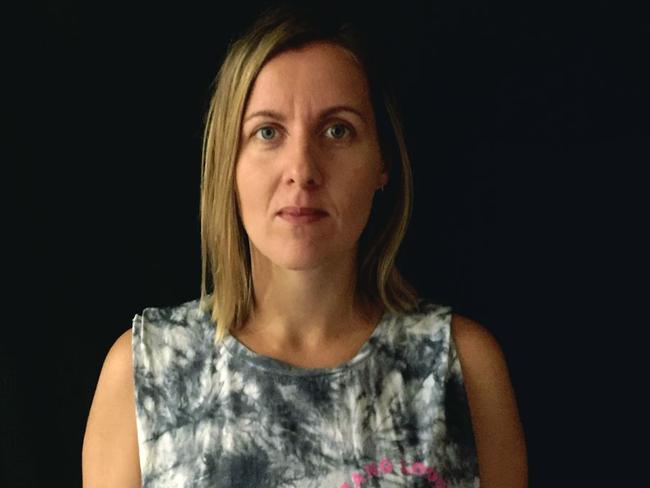
“He was the first person who saw our scan and he was so excited to have another little niece or nephew,” Anna said.
Anna and Neil told Joel the news on Friday, January 9. Thirty-six hours later, at 12.15am on January 11, he committed suicide.
“It should’ve been the happiest moment of my life, telling my friends that I am pregnant,” she said. “Then, the next day I had to ring up Joel’s mum and tell her Joel had passed away.”
Anna was the first person to find Joel’s body. “The hardest thing I found about Joel’s passing was cradling death and life in my arms at the same time,” she said.
“I had a child inside of me that I was growing and then I was holding Joel, who had passed away, in my arms.
“I always get flashbacks about that. It is something so small and maybe there is something selfish about the whole thing, but it was very surreal.
“To think that I am so happy to have this life in me but I’m so sad because I have just had a life taken away from me — that is the hardest thing. Maybe if I didn’t get pregnant he would still be here.”
“The hardest thing I found about Joel’s passing was cradling death and life in my arms at the same time,”
Anna has since given birth to their second daughter, Jhett Halia Brown, the same initials as Joel Hayden Brown, the uncle she will never meet.
“I just don’t think we could’ve named her anything else,” Anna said. But while Jhett will only learn of her uncle through stories and photographs, Madison, 4, has not forgotten.
“Madison keeps asking when we are going to see her uncle Joel,” Anna said.
“I said at first that Joel is on a long holiday fishing and surfing. Then it has gone to: Joel lives up near the moon.”
Anna doesn’t know how or when she and Neil will tell their daughters what happened.
The whole experience rattled the couple to their core, but has also brought them closer together.
Both have seen psychologists and Anna said Lifeline has been a continual source of strength and support.
“The counselling has made us stronger and more aware of not to blame ourselves in some sense,” she said.
HIS MOTHER
KARIN JOHNS, 54
WHEN Joel slammed the door in her face, little did Karin know that would be the last time she would ever see her beautiful boy.
It was January 2 at the family home in Coraki, near Lismore.
Joel had spun out into a violent and alcohol-fuelled rage which had both Mrs Johns and the family at their wits’ end.
The episode had come off mounting pressures brought on by a severe work injury to his hand, the isolation of living away from his family and friends in Casino, a suspended licence, excessive drinking and a lack of cash.
“I said to Joel: ‘what is going on’?” Mrs Johns said.
“He said ‘nothing, nothing’. I asked him: ‘Do you want to talk to someone about this? Do you need help?’
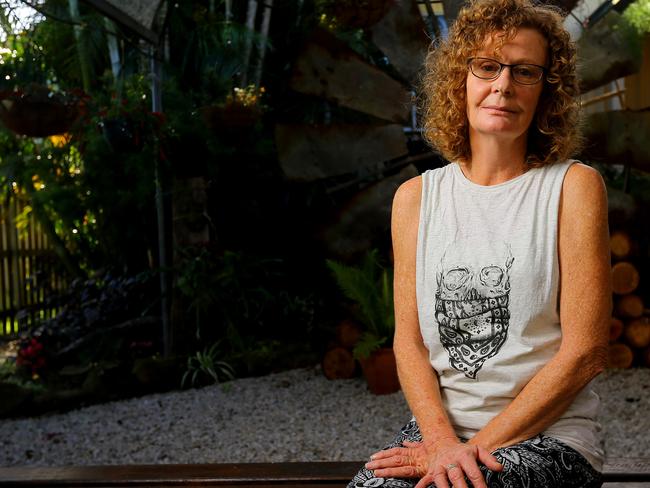
“I don’t think he answered. He threw a bottle of water at me. He slammed the door shut.”
Nine days later and 671km down the coast in Umina, Joel committed suicide.
Mrs Johns’s face lights up when she talks about Joel’s achievements at school, when he was consistently at the top of his class for woodwork.
Her most prized possessions are a cabinet and an individual drawer, items her son made with his bare hands.
At the centre of a wall of pictures of Joel in the family home sits his Certificate III in cabinet making.
It arrived in the post a few days before his January 22 funeral.
“I remember saying ‘this is going to be a good year for you, Joel. You just need to hang in there’,” she said.
“I will never move on. I guess Joel will just have to move on with me.”
“ ‘This is the year you have been waiting for’.
“I could see the light at the end of the tunnel for him, but he couldn’t, obviously.”
Mrs Johns said she feels guilty returning to work because everything seems to be normal.
She admits she is forced to put on a brave face for her blended family — seven children and 14 grandchildren.
“Sometimes when we are all together you expect him to come, and then you have that moment when you realise that he won’t come, he won’t drop in,” she said.
“I don’t know how to move on from this.
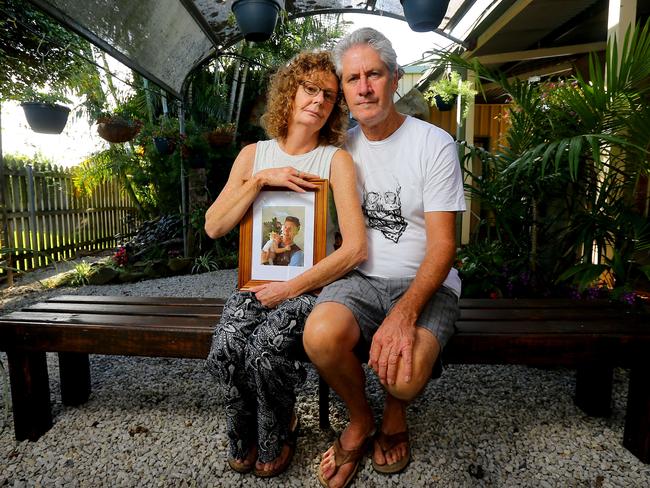
“I will never move on. I guess Joel will just have to move on with me.”
It’s a good thing that Mrs Johns sleeps well, because waking up is something of a nightmare.
Having lost her son to suicide only 15 months ago, she is still trying to comprehend the difficulty of never having said goodbye.
“Sometimes waking up is really good because you have that split second when you don’t remember what has happened,” she said.
“There is that split moment before you start thinking about everything again. When I wake up it’s just him. I feel more numb.”
HIS BROTHER
NEIL BROWN, 32
HOW do you fully recover after coming face-to-face with the dead body of your own brother?
The answer is, you never do.
Neil Brown admits he was “shattered” when his own flesh and blood killed himself.
“I always feel like he is around,” the father of two said of his brother.
“I think about him a lot when I am on my own. Not in bad way. I talk to him. I ask him questions.
“I ask him different things, like what he thinks about what I am doing.
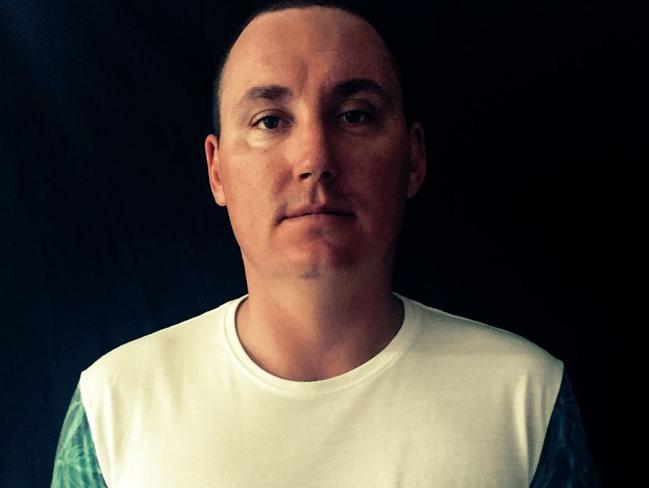
“Sometimes I get frustrated when I think about what happened and I talk to him — like we are talking now — saying ‘I wish you could have given us a chance’.
“We all miss him.”
Joel’s death came after the pair had spent an idyllic week together, fishing, surfing, doing home renovations and bonding over beers.
Nine days earlier Neil, his partner Anna and their young daughter Madison had picked up Joel from the state’s far north coast after he “flipped out” and was threatening suicide.
Neil thought some quality time together on the Central Coast, away from the pressures and isolation of Casino, would do his brother good.
In the hours before Joel’s death, Neil was trying to get his brother to see all the good things that he had to live for. His youth, his health, family and friends.
“I think about him a lot when I am on my own. Not in bad way. I talk to him. I ask him questions.”
But instead of listening to the desperate pleas of his older sibling, Joel stormed off.
The next time Neil saw Joel he was dead.
“For some reason I thought it had only just happened and that I could fix him,” he said.
“I faced him and was yelling at him.
“I remember touching him and as soon as I touched him I knew that he was gone.
“Sometimes I go over the conversations that we had leading up to it and I think if I did or said something different it might have changed his mind.
“But the more I think about it, it was something that he decided to do long before that night.
“Sometimes I think that he came down to spend that time with me, when he had already made his choice. I’ll never know.”
Joel has left behind an older brother who would do anything for him, a sister-in-law who thinks of him constantly, and a niece who asks “where’s uncle Joel?”
“The hard thing now is when Madison asks about Joel,” Neil said of his four-year-old daughter.
“When she asks about Joel it is so hard. They are short conversations. I just say that he has gone away.
“I can’t look at her and talk to her about it without getting upset.”
HIS BEST MATE
BOB MURRAY, 24
EVERY time Bob Murray goes surfing at Evans Head he can see his best mate Joel.
With Joel’s plaque sitting on the headland facing the ocean, he likes to think his childhood friend is watching over him when he glides across the waves on his longboard.
“He was always at our place in Evans Head, using all my clothes and wetsuits and boards and breaking my boards,” the 24-year-old said.
“He was wild, a surfer, a larrikin, loved partying, loyal, always exciting to be around — everything you wanted in a best mate.”
The pair were inseparable when they went to Evans River High, sleeping over at each other’s houses most nights and surfing together before school.
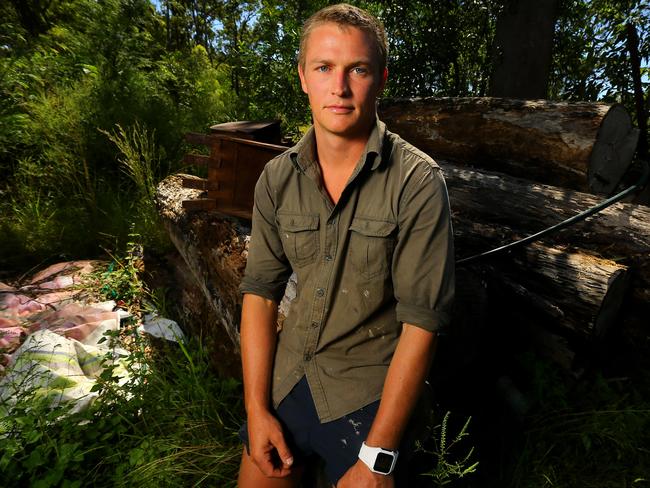
Then as Joel pursued a trade in Year 11 and Bob finished Year 12 and went to university in Brisbane, they didn’t see as much of each other.
But they always caught up when Bob was back in their home town of Woodburn and were in constant contact over social media.
Bob said he didn’t see Joel’s death coming at all.
“It’s really easy to hide your illness just over social media, because social media does take emotion out of it,” he said. “I had no idea that he was that sick. It was a real shock. The thing that hurt the most was that he had my number and we were so close.
“It frustrated me so much that he didn’t think to ring, he didn’t think to catch up and that I could have potentially saved him.”
While Bob was living in Brisbane his flatmate threatened suicide. Articulate and open-minded, Bob managed to talk him back from the brink and in the process learned a lot about mental illness.
“You find you are a bit more grateful for your friendship. You have to use your mates because that is what they are there for.”
He said this has assisted him in processing the loss of his best mate.
“My reaction to his death was not anger. He definitely was not in the right headspace and was not himself, so you can’t blame him for it.”
Bob said Joel comes up at least twice a week in conversations with friends and family.
He said Joel being mentioned is not negative or sad, but rather like someone who is still part of his group of mates.
“It has changed us as a group for the better,” Bob said of Joel’s death.
“We catch up more and we genuinely ask each other how we are doing and if there is anything wrong. Mental health is not a laughing matter — we see it as a serious thing.
“You find you are a bit more grateful for your friendship. You have to use your mates because that is what they are there for.
“And if they are not there for you in that situation then they are not your mates.”
HIS STEPSISTER
DELLI JOHNS, 32
SUICIDE is not an option.
It is this simple lesson that mother-of-three Delli hopes to pass on to her kids, following the death of her “little brother” Joel.
Joel lived at Delli’s house on and off in his late teens, often babysitting Chole, 12; Danielle, 8; and two-year-old Natalie.
Delli admits she is still angry at Joel for killing himself and inflicting such pain on the family.
“I still get angry at him — heaps,” she said. “He chose to do this, and that helps me a little bit. It was his decision. This is what he wanted.
“I still get a bit angry with him because he was really close with my kids.”
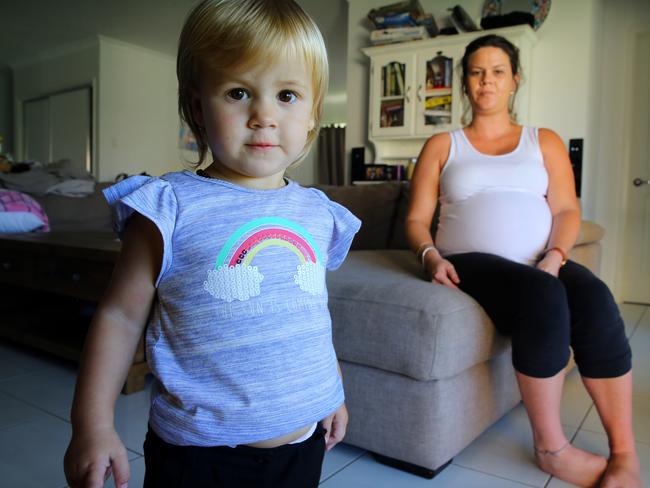
When Joel died, Delli did not allow her kids to go to the funeral, admitting that her eldest daughter, Chole, is very sensitive. The kids know he has died but haven’t been told how it happened.
“I just don’t want them to think that is a choice in life,” she said.
Delli witnessed Joel’s deterioration first-hand over the Christmas-New Year period of 2014-15.
Joel didn’t get paid before New Year’s Eve, leaving him with no money to go out.
Every time she came around to stepmother Karin John’s home, she wouldn’t be able to speak to Joel because he was living in his room for days at a time.
“I should’ve got up and just taken him for a surf or got out of the house. I should’ve done a bit more for him.”
She also saw him drinking a lot and said he was unable to regulate his emotions when things didn’t go to plan.
“There were a few signs before it all came to this,” she said.
“I personally thought it was attention seeking, because he was down in the pits. I thought he would never do it, harm himself.
“I did not think he would because he loved life. When I found out that he did it I thought ‘I bet you’re regretting that now Joel’.
“He loved the kids and loved his family. The alcohol didn’t help.”
Joel lost his licence in September 2013, making it hard for him to get around a country town with no public transport.
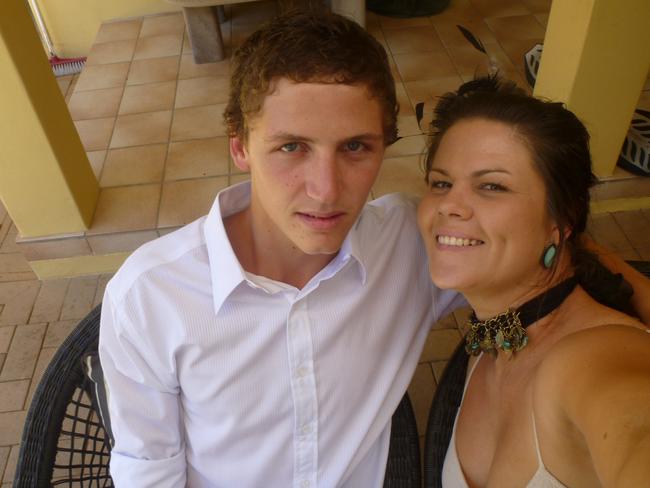
Suspended for three years for a string of driving offences, he would have got his licence back later this year.
This meant that Joel used to lean on his older sister to give him lifts. Looking back she wishes she had done more for him.
“I’d be having a midday sleep — because Natalie was only little — and I’d hear him knocking at the door,” she said.
“I’d be like ‘this is my sleep time’ and ignore him because I’d know he’d want to do something.
“He hated relying on people all the time, too. It really got to him. He felt like a scab.
“I should’ve got up and just taken him for a surf or got out of the house. I should’ve done a bit more for him.”
HIS FISHING BUDDY
LUKE RUTTS, 36
SIX of his friends have committed suicide but it was the death of mate Joel which truly shocked Luke.
It also prompted a complete shift of his view of suicide, from anger to understanding.
Together with Joel’s older brother Neil, Luke was with Joel for most of the final week before he died.
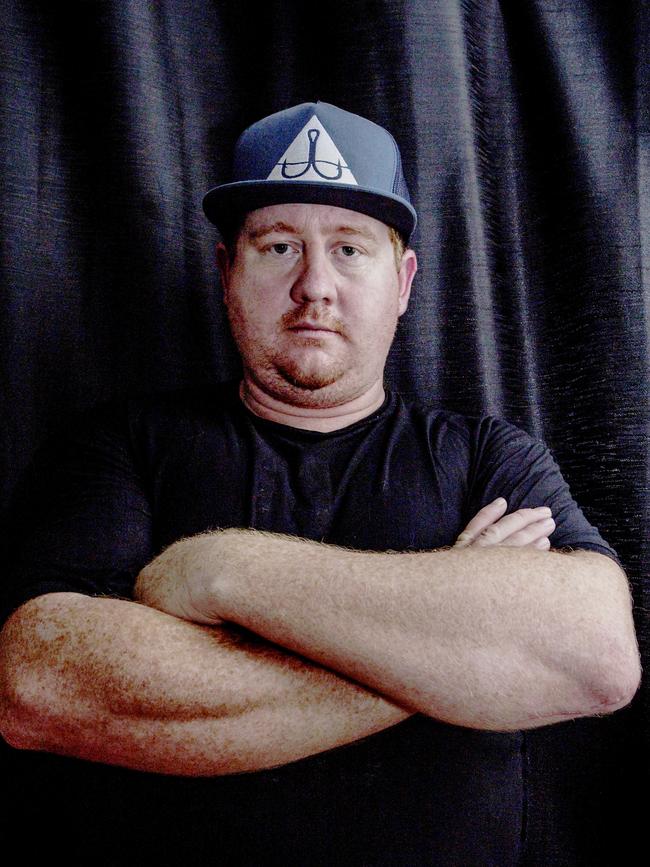
The trio spent their time fishing out on Brisbane Water on the Central Coast, catching flathead and drinking beer.
Luke knew that Joel was struggling, but says he never expected Joel to commit suicide.
“I didn’t think his issues would end up going as far as they did,” the 36-year-old said.
“I thought about having a chat to Joel on that day (hours before his death), about maybe not drinking as much as he had been, but Neil was there and I didn’t want to do it in front his brother.
“Tragically I never got around to it.”
Luke has spent his whole life on the ocean as a commercial fisherman and has seen the debilitating effects of alcohol on young men.
He has also seen the stigma of mental illness first hand.
“Especially with guys Joel’s age, 20-somethings; they think they are invincible and want to be seen as invincible, but really they are at an age where you’re struggling the most,” he said.
“You don’t know whether you are here nor there. I’m still angry at alcohol. I still believe to this day that it definitely wouldn’t have happened if Joel didn’t have a problem with alcohol.”
Luke said Joel’s hometown of Evans Head has been a hotspot for suicide with seven mates having committed suicide.
Fiercely loyal and protective of Neil, at first he was angry with Joel for what he initially thought was such a selfish act.
“Especially with guys Joel’s age, 20-somethings; they think they are invincible and want to be seen as invincible, but really they are at an age where you’re struggling the most.”
But following Joel’s death he has educated himself more about mental illness, coming to realise that “mental illness is a serious thing” and that Joel was not in the right headspace when he killed himself.
He just wishes he could go back in time.
“I still feel a big loss, I feel like there was a missed opportunity to help him,” Luke said.
“If I knew then what I know now, I would like to think that I could have helped Joel more.
“I just was not equipped to deal with what he was going through. I really wish I was.
“I will forever feel for Neil. He is never going to get over what happened on that morning.
“It will forever have a mark on their lives and my own.”
HIS CLOSE MATE
SAM McDONALD, 32
JOEL’S final hours were no doubt filled with loneliness, anger and pain — wrongly thinking that the world would be with be better off without him.
It’s a sad irony then that it was during those hours his mates were talking about how much they missed him.
Sam McDonald is part of network of boys from northern NSW who were close mates with Joel.
They were enjoying a day on the booze on Saturday, January 10.
“The night leading into his death I was drinking with Ben Thompson, my brother Adam, and a few other mates in Ballina,” Sam said.
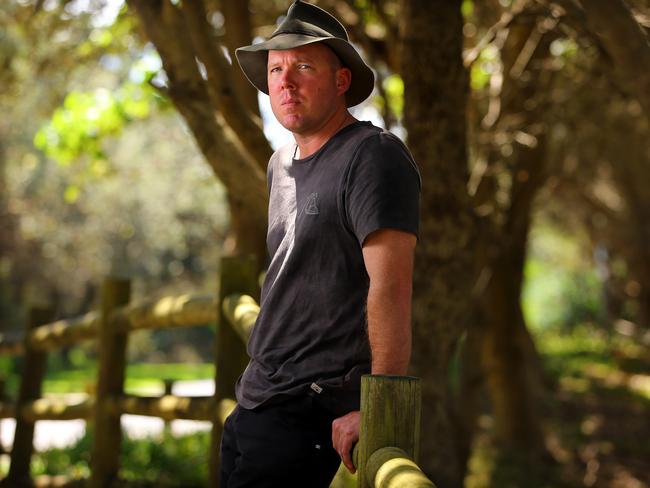
“Joel’s name got mentioned, saying that we all hadn’t spoken for a while and were wondering what he was doing.
“We knew that he had gone off the rails a bit, losing his licence and looking for work.
“In the six months before he died, I had sent him messages to see if he wanted to go fishing, but I didn’t get any replies. We all missed him because he wasn’t there.”
Sadly that catch-up with Joel would never come.
The next day Sam remembers driving down St Helena Hill in Ewingsdale, before getting the phone call which would change his friendship group forever.
He had to pull the car over and tell his brother Adam, who was also close with Joel.
It was one of the toughest conversations he has ever had.
“We are more honest and open with each other. I took more time to visit the people I care about rather than just talk to them on the phone.”
“It was strange that we were speaking at that time in Ballina and he was putting himself in that position where he wanted to end it all,” Sam said.
Sam also thought immediately of Joel’s brother Neil and his partner Anna, who went through the unspeakable anguish of finding Joel’s body.
“It was so much pressure to put on such a beautiful young family,” he said.
Sam said the 12-month anniversary was a tough day and that he tries as best he can to suppress the pain.
Being close with Joel’s brother Neil, the whole experience has made Sam look to his own brother more.
“I realise how lucky I am to have him,” Sam said of younger brother Adam.
“He could be taken away the next day. Joel’s death brought a lot of people closer together who might not have been before.
“We are more honest and open with each other. I took more time to visit the people I care about rather than just talk to them on the phone.”
Phone-in Sunday to save lives
ONE phone call could save a life.
Next weekend, The Sunday Telegraph will conduct a special one-off event, Can We Talk Right Now.
On Sunday, April 10, we will ask any of our readers who are concerned about a young person — or about their own mental health — to pick up the phone and speak to the experts who are waiting to help.
Our partners Lifeline, Kids Helpline and eHeadspace will all gear up to answer readers’ phone calls and online messages, continuing the lifesaving work they do around the clock every day.
Extra volunteer counsellors and experts will be on hand to deal with the anticipated lift in call volume from Sunday Telegraph readers.
The initiative is part of our groundbreaking Can We Talk series of stories, forums and events, all aimed at encouraging families to confront young people’s problems with depression, suicidal feelings and mental ill-health.
Of course, any one is free to contact Lifeline, Kids Helpline or eHeadspace any time.
Editor Mick Carroll said the day was designed to get every family thinking about whether their young people are really OK, and to reach out to the free expert services available to help all Australians.
“We are determined to do everything we can to shine a light on young people’s mental ill-health, and to help families get access to the services they need,” Carroll said. “I urge anyone who’s concerned to take this opportunity to reach out, even if they just need a sympathetic ear.”
Our Can We Talk forums will continue this year, with events planned for Campbelltown (May 18), Tamworth (June 7) and Orange (June 28).
For more details and registrations, check back later in the week.
If you or someone you know needs help, reach out now to:
• Lifeline: 131114 Crisis support and suicide prevention from trained crisis support volunteers.
• Kids Helpline: 1800 55 1800; Expert counselling for anyone aged 5-25 concerned about any issue.
• eheadspace.org.au or 1800 650 890; Online and telephone support and counselling for young people 12-25 and families and friends.


